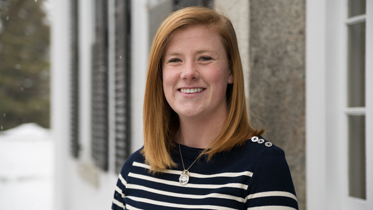The Neuroscience Major comprises:
- 6 Prerequisite courses
- 4 Core Courses
- 4 Elective Courses
- 1 Culminating Experience
Core courses provide a strong background in the measurement of behavior as it relates to the brain. Then, students are expected to choose a set of electives that will lead them towards a broad understanding of the neuroscience field, as well as techniques used by neuroscientists to study the brain. The electives list is meant to be adaptive. For example depending on one's interests/future goals, electives in Computer Science and Mathematics could be selected that emphasize computational methods. Alternatively, a student might choose electives emphasizing cell or molecular biology. Students fulfill their culminating experience by either conducting research in neuroscience under the direction of a PBS faculty advisor (PSYC 90, 91, or 93) or taking an upper-level seminar (PSYC 80s) with an emphasis in neuroscience (See 'Electives' section below for explanation). We encourage students considering further graduate school study in Neuroscience to opt for the research experience option (PSYC 90, 91, or 93).
Utilize the appropriate checklist neuroscience major checklist for class of 2023 and earlier or neuroscience major checklist for class of 2024 and later to guide your major plans and view the major flowchart for the recommended order in which to progress through the courses in the major. These materials can augment your seeking advice from your Neuroscience course instructors as you progress through the major. When you are ready to declare your Neuroscience major, follow the instructions from the Registrar's Office.
Students interested in the research experience option as their Culminating Experience can learn about ongoing research in PBS through their coursework as well as exploring the People section of this website to learn more about the Faculty. Learn how to find a research advisor and how to obtain funds for research projects.
PBS Faculty provide a core resource for research opportunities for students; however, neuroscience research opportunities for undergraduate majors can also involve faculty in the School of Medicine, the Thayer Engineering School, and other departments within the College of Arts and Sciences subject to approval by the Neuroscience Steering Committee.
The Chair of the Neuroscience Major Steering Committee is Professor Kyle Smith.
Notes on Major Modification
Students in the class of 2025 and earlier: The neuroscience major cannot be modified with another major. However, students can petition to modify another major with neuroscience (e.g., Comp Sci modified with Neuro) if the primary major department allows it. If so, when submitting the major plan in DartWorks the student should include in the modification rationale information as to why a modification is preferable to minoring in Neuroscience, and explaining which 4 neuroscience courses (in addition to the prerequisite PSYC 6) will be used for the modification, and why they are suitable.
Students in the class of 2026 and later: The Neuroscience major cannot be modified. This includes both Modified Majors in which Neuroscience is the primary component (e.g., Neuroscience Modified with Biology) and those in which it is the secondary component (e.g., Biology Modified with Neuroscience). Students who seek to modify a major in another department with courses in Neuroscience may do so by using the option of a modified major without indication of the secondary department (e.g., Biology Modified). Students who wish to have a more substantial study of Neuroscience noted on their transcript are encouraged to declare a Neuroscience minor.
